David’s performance text:
The most prominent syllables under the new theory of the ancient accent are printed in bold. On occasion the presence of digamma obtrudes into the convention; a discussion of the issues involved for both text and performance will be forthcoming as this project unfolds.
ἄνδρα μοι ἔννεπε, μοῦσα, πολύτροπον, ὃς μάλα πολλά
πλάγχθη, ’πεὶ Τροίης ἱερὸν πτολίεθρον ἔπερσε:
πολλῶν δ᾽ ἀνθρώπων ἴδεν ἄστεα καὶ νόϝον ἔγνω,
πολλὰ δ᾽ ὅ γ᾽ ἐν πόντῳ πάθεν ἄλγεα ὃν κατὰ θυμόν, 5
ἀρνύμενος ἥν τε ψυχὴν καὶ νόστον ἑταίρων.
ἀλλ᾽ οὐδ᾽ ὧς ἑτάρους ἐρρύσατο, ἱέμενός περ:
αὐτῶν γὰρ σφετέρῃσιν ἀτασθαλίῃσιν ὄλοντο,
νήπιοι, οἳ κατὰ βοῦς Ὑπερίονος Ἠϝελίοιο
ἤσθιον: αὐτὰρ ὁ τοῖσιν ἀφείλετο νόστιμον ἦμαρ. 10
τῶν ἁμόθεν γε, θεά, θύγατερ Διὸς εἰπὲ καὶ ἡμῖν.
Samuel Butler’s prose translation, with certain names Hellenised:
Tell me, O muse, of that ingenious hero who travelled far and wide
after he had sacked the famous town of Troy. Many cities did he visit,
and many were the nations with whose manners and customs he was acquainted;
moreover he suffered much by sea while trying to save his own life
and bring his men safely home; but do what he might he could not save
his men, for they perished through their own sheer folly in eating
the cattle of the Sun-god Hyperion; so the god prevented them from
ever reaching home. Tell me, too, about all these things, O daughter
of Zeus, from whatsoever source you may know them.

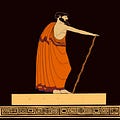





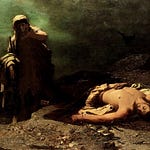
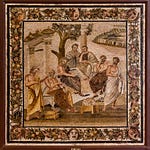


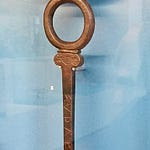
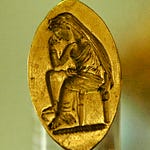
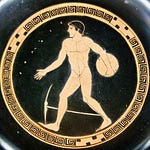
Odyssey 1.1-10